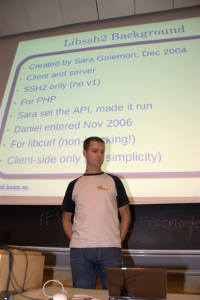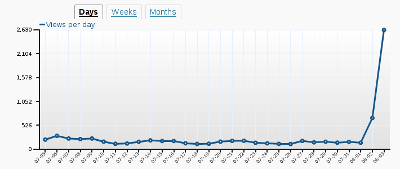Several sites in the haxx.se domain and other stuff related to me and my fellows were completely offline for almost 50 hours between August 24th 19:00 UTC and August 26th 20:30 UTC.
The sites affected included the main web sites for the following projects: curl, c-ares, trio, libssh2 and Rockbox. It also affected mailing lists and CVS repositories etc for some of those.
The reason for the outage has been explained by the ISP (Black Internet) to be because of some kind of sabotage. Their explanation given so far (first in Swedish):
Strax efter kl 20 i måndags drabbades Black Internet och Black Internets kunder av ett mycket allvarligt sabotage. Sabotaget gjordes mot flera av våra core-switchar, våra knutpunkter. Detta resulterade i ett mer eller mindre totalt avbrott för oss och våra kunder. Vi har polisanmält händelsen och har ett bra samarbete med dem.
Translated to English (by me) it becomes:
Soon after 8pm on Monday, Black Internet and its customers were struck by a very serious act of sabotage. The sabotage was made against several of our core switches. This resulted in a more or less total disruption of service for us and our customers. We have reported the incident to the police and we have a good cooperation with them.
Do note that you could keep track of this situation by following me on twitter.
It’s good to be back. Let’s hope it’ll take ages until we go away like that again!
Update: according to my sources, someone erased/cleared Black Internet’s core routers and then they learned that they had no working backups so they had to restore everything by hand.





